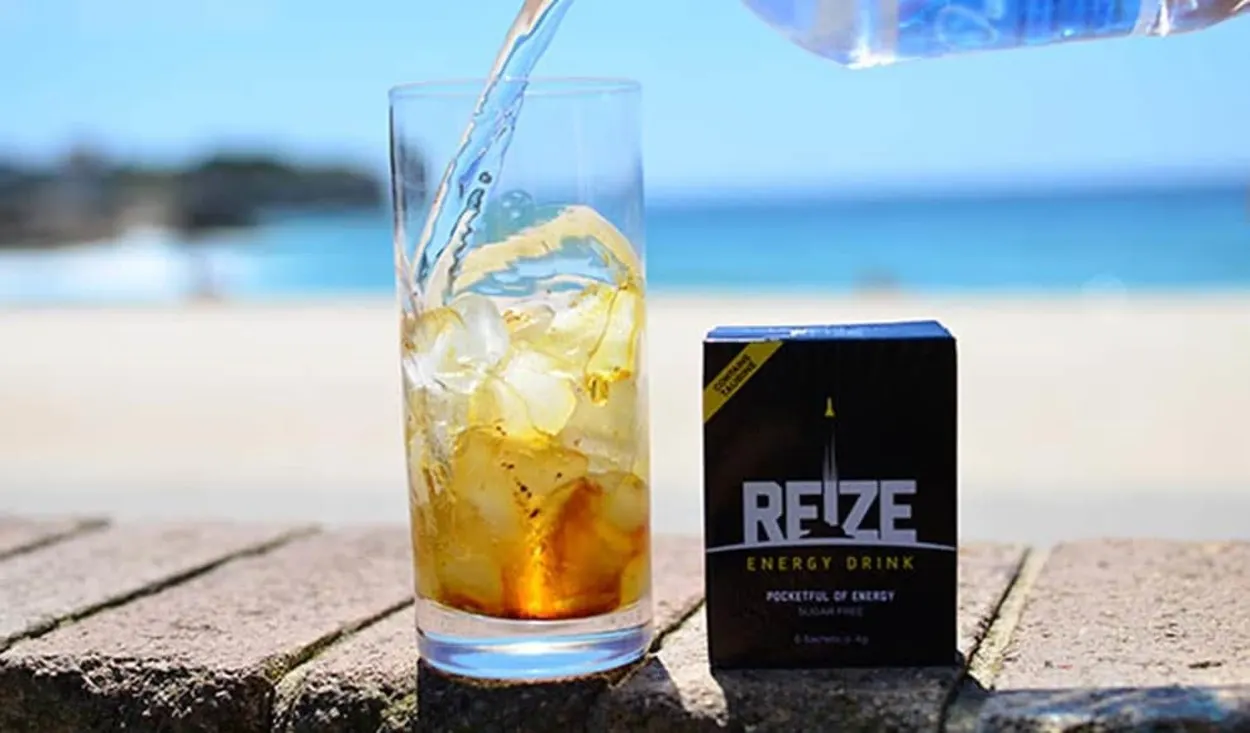Caffeine is a natural drug that can help you manage your everyday activities, chores, and, most importantly, work. It also boosts your physical strength, which allows you to do things with vigor.
With the positive effects that caffeine can bring to your body, it’s no surprise that it’s the primary ingredient in energy-boosting drinks.
That said, you might be wondering: how long can does caffeine last in your body?
Caffeine primarily stimulates your central nervous system, improves your mood, boosts your energy levels, and keeps your concentration at its peak. If you consume a sensible 40 mg of caffeine, its effects can last for 5 hours of half-life. It stays longer than you can imagine!
To understand more about the caffeine progress and how long caffeine lasts, read on and find out.
How Long Does Your Body Need to Metabolize Caffeine?
Caffeine is a psychoactive drug that provides a lot of benefits to your body. It’s a common ingredient for most foods and beverages.
In general, your body will take around 5 hours to metabolize the half-life of caffeine, though it may differ based on various factors, such as your caffeine tolerance.
Caffeine improves your mood and increases your energy levels, heart rate, and blood pressure. It is a quick energy booster, and you will notice its effect in just a minute which can last depending on your caffeine metabolism.
In general, your body needs at least 5 hours to digest the half-life of caffeine. For example, if you consume 50 mg of caffeine, there’s still 25 mg of caffeine in your system after five hours.
There are several factors that affect your caffeine metabolism including age, health condition, and even genetics. Depending on that, the duration that you feel the effects of caffeine may vary.
Personally, I would recommend energy drinks that contain at least 50 mg to 100 mg of caffeine. It’s easier to digest and helps you maintain the balance in your system.
When Can you Feel the Effect of Caffeine?
The effects of caffeine can normally happen as you get your first sip. And you will feel its peak after 15 to 45 minutes. This caffeine can quickly metabolize in your liver after five hours.
The strongest effect of caffeine is usually felt during this time. Once you consume caffeine, you will feel more awake and energized.
That said, it’s important to note that consuming too much can make you feel less motivated, fatigued, and experience an increase in heart rate and blood pressure.
For your reference, the FDA recommends a daily caffeine limit of 400 mg. Consuming more than that can result in discomfort and other nasty symptoms.
What is Caffeine Tolerance?
Caffeine tolerance refers to the ability of your body to respond to the caffeine that you take. Continuously increasing your caffeine consumption can lead to tolerance.

There are actually two sides to your body’s caffeine reaction.
If you have a low tolerance to caffeine, you will feel extreme alertness, mood improvements, as well as motor development even with a small amount of caffeine.
On the other hand, high caffeine tolerance can help you manage highly caffeinated drinks. But, know that it’s just a show-off. You will gradually build up the negative effects like sleeplessness, anxiety, headache, caffeine crashes, and slow progress with your activity or work.
To combat caffeine tolerance, it would be great if you manage your caffeine consumption. Pay close attention to the nutritional labels of your beverages, and stick to the FDA-recommended caffeine limit.
Primary Sources of Caffeine
To give you a glimpse of the beverages and their caffeine content, check the table below:
| Drinks | Amount of Caffeine |
| Brewed Coffee 8 fl. oz) | 100 to 200 mg |
| Instant Coffee (8 fl. oz) | 30 to 150 mg |
| Espresso (1 fl. oz) | 30 to 50 mg |
| Decaffeinated Coffee (8 fl. oz) | 5 to 10 mg |
| Caffeinated Soda (12 fl. oz) | 45 mg |
| Black Tea (8 fl. oz) | 40 to 70 mg |
| Brewed Tea (8 fl. oz) | 47 mg |
| Chocolate Candy Bar (1.55 fl. oz) | 9 mg |
| AMP Energy Drink (16 fl. oz) | 142 mg |
| Bang Energy Drink (16 fl. oz) | 300 mg |
| Red Bull (8.4 fl. oz) | 80 mg |
| Celsius (12 fl. oz) | 200 mg |
| Monster (16 fl. oz) | 160 mg |
| Rockstar (16 fl. oz) | 160 mg |
| Rip It (16 fl. oz) | 160 mg |
| Zipfizz | 100 mg |
| REIZE (4 g) | 50 mg |
What Can You Get From Drinking Caffeinated Drinks?
Caffeine can provide both positive and negative effects on your body. What you’ll experience depends on your consumption.
Take a look at the advantages and disadvantages of caffeine consumption:
Advantages
You will get a lot of benefits with proper consumption of caffeine, such as:
Improvement in Sports Performance
If you often play sports, caffeine may be a good companion to up your performance. Caffeinated drinks provide a boost that can help you manage your body and develop physical endurance which can help you perform well and give your best shots.
If you’re interested in finding the best energy drinks for your workouts, check out this article here.
Alertness and Concentration
Caffeine increases your alertness and concentration by blocking your adenosine receptors from entering your brain.
Know that once the adenosine receptors enter your brain, you will feel tired and want to rest. The role of adenosine is to tell your body to take breaks, which is why your body will feel tired when adenosine enters your brain.
With caffeine, you will feel a sudden burst of energy that helps you manage your body.
Brain and Cognitive Functions
Caffeine can improve your thinking process and memory. It helps you strategize effectively and handle your activities in your own way. It also plays an important role in slowing down your mental decline brought on by age.
Disadvantages
While there are numerous benefits from caffeine, consuming excessive caffeine can lead to adverse side effects:
Sleeplessness or Insomnia
Excessive consumption of caffeine can lead to insomnia or sleeplessness. Know that the half-life of caffeine in your body is five hours.
Drinking too much slows down your caffeine metabolism, which prevents you from getting a good night’s sleep.
Depression
Drinking too much caffeine can trigger your mood, which leads to anxiety attacks and depression. The more caffeine you consume, the more susceptible you’ll be to depression and anxiety.
Caffeine Dependency and Addiction
You need to watch out for your caffeine intake, as it might cause you to form addiction and dependency on caffeine.
When your body becomes fully dependent on caffeine, you’ll not be able to function well without drinking caffeinated drinks.
It’s not limited to that because you might suddenly feel a build-up that continuously increases your caffeine consumption. It’s not good because it can lead to dizziness, jitters and shakes, dehydration, and even irritability in your surroundings.
It’s essential to regulate your caffeine consumption to minimize potential health problems. Check this video out to know more about the effects of caffeine on your body.
How to Get Caffeine To Wear Off?
Here are the things that you can do:
Know When to Stop
The first thing that you need to do is to stop your caffeine consumption. If you notice that you’re starting to feel a bit light-headed or have an increase in heart rate, it’s best to put down that energy drink even if you haven’t finished it yet.
Hydrate Yourself
Know that caffeine is a diuretic by nature, so you’ll have to keep yourself hydrated in order to minimize its effects. Increasing your water intake can help in flushing out caffeine faster.
I would recommend keeping the caffeinated beverage-to-water ratio at a decent 1:1 rate. For every energy drink you have, you should try and have the same amount of water if you’re trying to shake off accidental jitters as quickly as possible.
Exercise
Considering caffeine is known to improve exercise performance, if you start getting jittery, it might be best to go for a quick run to metabolize the caffeine at a faster rate. Plus, you get to burn some calories in the process, making it a definite win-win situation.
Can caffeine make you sleepy?
Yes, caffeine may make you feel sleepy.
We all know that caffeine has energizing benefits that can keep you awake for a longer period of time. On the other hand, it can cause caffeine crashes which can lead to fatigue and restlessness making you feel sleepy.
The best way to avoid fatigue and restlessness due to caffeine is to keep your intake in moderation. Go easy on caffeine to reap its maximum benefits.
If you want to do away with caffeine, I have listed a few good recommendations for you in this article.
How long does coffee keep you awake?
You’ll be awake for at least 6 hours after consuming a caffeinated beverage.
However, there is no specific length as to how long caffeine can keep you awake as we all have different caffeine metabolism.
Still, keep in mind to consume caffeinated beverages in moderation to avoid their nasty side effects.
For recommendations on energy drinks for staying awake, read this article!
REIZE (10 out of 10)

If you’re looking for an energy drink that gives you a boost without harming your health, REIZE would be your perfect choice!
This powdered energy drink comes with a sensible 50 mg of caffeine, and 11 calories, and it’s completely sugar-free. On top of that, it’s a drink that’s packed with essential vitamins like taurine, ginseng extract, and essential B-vitamins.
REIZE is also convenient because you can have it wherever and whenever you like. All you need to do is pour the powder into your water or chosen beverage and mix it well. It is a refreshing thirst quencher that satisfies your tastebuds.
Best of all, you can enjoy REIZE for only about $1 and have it shipped directly to your home. It’s hassle-free and totally amazing!
Give REIZE a try today and experience the goodness in every sip.

